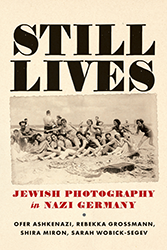By
– August 29, 2011
A narrow focus of time and place gives this collection of articles great strength. From different vantage points and through different lenses, the reader is given a vivid picture of what Jewish life was like in the city of Frankfurt. The early modern period was one of great change in Western Europe, and for the Jews of Frankfurt it reached its climax in the late 19th century, when the Jews were finally permitted to live outside the walls of the ghetto, and the tenements of the Jewish street were torn down. The image of the ghetto immediately sets one’s attention on relations between Jews and Christians, but the articles go beyond that. They show how Jews were seen by ethnographers who were particularly fascinated by Jews. The power struggles within the Jewish community, and the political concerns of both Jews and Christians, are discussed, sometimes through literary rather than documentary sources. The musical customs of the Frankfurt synagogues are placed in historical context, and some interesting letters from the Rothschild family’s Frankfurt branch that were recently recovered from Russia are described. The scholarly tone and dense typesetting require a determined reader.
Pinchas Roth (PR) is a post-doctoral fellow at Ben Gurion University of the Negev.





